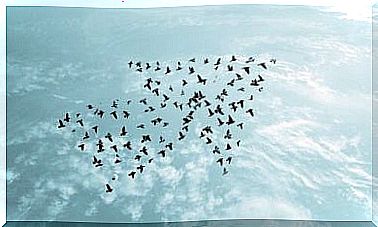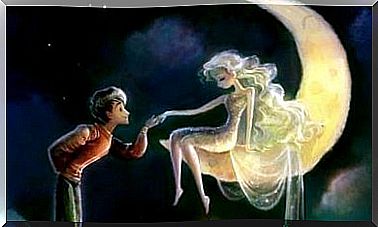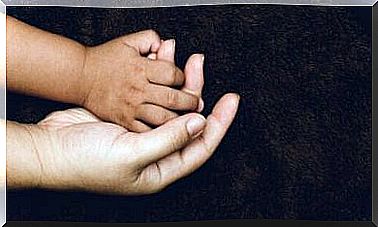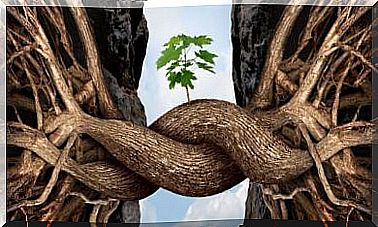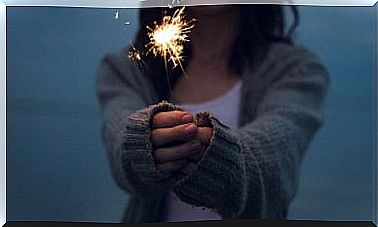A Baobab In The Heart – A Reflection On “The Little Prince”
If you find a baobab (tree) in your heart, pull it out from the root, for its seeds breed fear, insecurity, deceit and anger… Do this just like the little prince did. He removed the seeds from the giant baobabs on his small planet every morning. He did this for fear that they would grow too big. If they grew too big, their giant roots would destroy everything…
Some fears are intelligent rather than phobic, and they are good for our well-being. These fears regulate our survival, because they are controlled fears. But even then , there are circumstances where, without our knowing why, the baobab seeds still come up and infect everything. They are there, in the soil of our psychological garden, sometimes growing in silence, but still changing our balance and focus.
The metaphor in The Little Prince
It is possible that of all the reflections and thoughts that Antoine de Saint-Exupery left for us in The Little Prince, this is the most interesting. In the book, the little protagonist removed the bad seeds from his planet and nurtured the good seeds. The bad seeds were the seeds of the baobab. These had to be removed before they would destroy the planet. The rose bushes were the good seeds. He had a fondness for this.
This subtle metaphor undoubtedly symbolizes our fears, which come from our darkest sides and from which our cognitive impairments are amplified. These are the sources produced by anger, worry or grief, through which the fog prevents us from seeing our mental palace, and cracks appear in it.
A baobab in the heart – everyone has one
Each of us has a baobab in our heart. It may be just a seed now—invisible, dormant, and causing no problems yet. However, some are already suffering the effects of their growth. The influence of the baobab is that the roots grow far below the ground and destroy everything along the way. They change everything, and cause instability. This is because fears, like resentments, implode and destroy internal logic, order, and autonomy.
In The Little Prince , the main character asks the pilot if the lambs eat bushes. When the pilot says this is correct, the little prince is very happy. He thinks he’s finally rid of the threat of the baobab. But the pilot quickly corrects him: a baobab is a tree, not a shrub. This tree grows as high as a large church. They are so huge that even a herd of elephants wouldn’t be able to eat them.
The little prince imagines this, and thinks he might be able to pile elephants on top of each other. But a few seconds later, he realizes he might be better off stopping their growth. After all, once the baobab has grown, you can’t do anything about it. These large, destructive elements must be stopped at the earliest stage, when they are still small and no more than seeds…
The importance of stopping the growth of a baobab in the heart
There are those who see more in the metaphor of The Little Prince . There are those who warn that it is not just the seed of fear, but of evil itself. That there is a destructive force that makes the heart sick and capable of doing terrible things. It can shape the most horrific scenarios of violence and destruction. We all have this in our collective memory.
After all , everyone always has a baobab seed in them. Whether we feed it and let it grow is up to us. Like the little prince’s planet, everyone has both good and bad seeds in them. Whether they will flower and develop roots certainly depends on a number of factors. For example, our upbringing, education, and life experience…
Nevertheless, we must not forget that it is our choice whether or not we become a diligent gardener. We can remove the bad plants in time. The bad plants are useless to us. They destroy their environment and the natural balance of our personal garden. This is an important task that the little prince performs every day. He is the one who removed what he did not want, and took care of what he did want: his rose bushes.
We don’t need lambs or a herd of stacked elephants to clean up. If we have a baobab in the heart, we have a responsibility to remove it in time. And we must at least prevent the seeds from growing. This task contributes to our balance, our wisdom, and gives us a sense of discipline. It makes us pay attention to every change, every unusual growth. This way we can prevent small problems from growing into giant, terrible baobabs.
